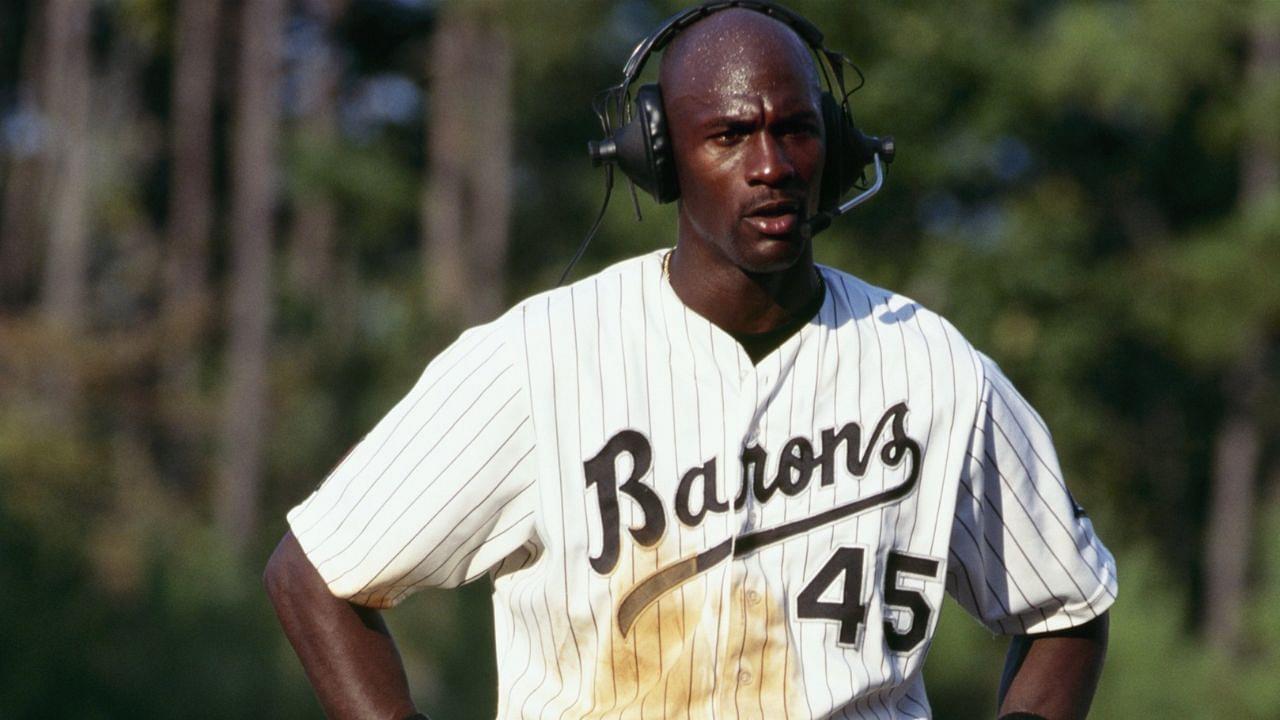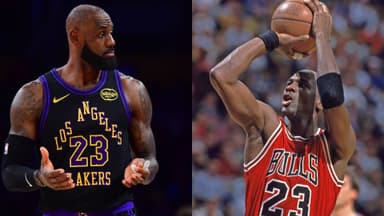Jerry Reinsdorf and the Bulls paid Michael Jordan his NBA salary that was thousands of times more than Minor League baseball players’ salaries.
Advertisement
Michael Jordan choosing to walk away from the NBA and the game of basketball at a professional level in 1993 sent shockwaves through the North American sporting world. Not only was he the reigning 3x Finals MVP but he was also a global icon by this point, becoming a symbol of immense success and perseverance across the world.
The reasons for why he wanted to leave the Chicago Bulls and the NBA however, were completely warranted. When it came to winning his first championship, that was his motivation: to win one title. That second title was so that he could go back-t-back and have his name amongst the likes of Magic Johnson and Larry Bird.
The motivation for his 3rd title in ‘93 came from his desire to surpass what Bird and Magic accomplished as they had never 3-peated. Once he did that, he felt his love for the game of basketball waver. He had actually told Magic during the 1992 Olympics that he was feeling this way but never made it public.
of course, the bigger reason for why he wanted to try out baseball was because his father always wanted him to. Following his untimely passing, Michael Jordan sought to make James Jordan’s wishes a reality.
Also read: Jeanie Buss snubbed LeBron James, declared 6x Champ Michael Jordan as the GOAT
Michael Jordan was paid by the Bulls despite never playing for them.
The 1993-94 season saw the Chicago Bulls weather the storm out East without Michael Jordan. They made a decent run in the Playoffs as well, losing in 7 games in grueling fashion to Patrick Ewing and his New York Knicks in the ECSF. While the Bulls were looking to maintain top-dog status, MJ was with the Birmingham Barons in the minor leagues.
Minor League baseball players make no more than $1500 but this was something the great Jordan could not have as his primary source of income. This is when Bulls owner, Jerry Reinsdorf, came to the rescue as he gave MJ his normal $3 million+ salary in that 1994 season despite him not having played a single game for his Bulls.
His reasoning? “Along with the Bulls I owned the Chicago White Sox. When Michael was signed to play baseball, I continued playing him his basketball contract which was something over $3 million per year. There was no reason to pay him other than he was underpaid his entire career. He made a lot of money for a lot of people,” said Reinsdorf.
After batting a .202, MJ returned to the NBA in 1995with a simple fax that read, “I’m back.” The rest is history.








